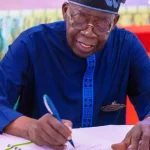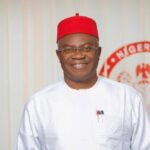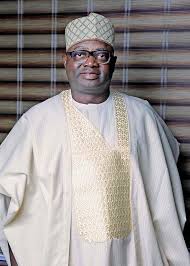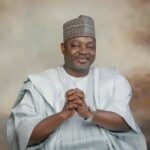Saheed Mukaila
Possibly, no any public office in Nigeria needs great leaders as much as Nigerian agencies. For leadership is not self-executing. It takes leadership to bring any government parastatal to live. Leadership demands discipline, tolerance and mutual regards.
In 2023, the National Orientation Agency (NOA) found another public servant, a complete and decent gentleman — Mallam Lanre Issa-Onilu – whose personality is responsible for mobilizing oriental energies that has already redefined public communication, citizen engagement and national reorientation.
Though the duration may seem short, the depths of his reforms reflect what would typically take a decade to accomplish. With strategic vision and innovative leadership, Onilu has repositioned the agency to serve as a vibrant instrument for national identity, civic awareness and value reorientation.
His transformational agenda like the National Identity Project was designed meticulously for national orientation. It is bold initiative driven by the understanding that a nation’s progress is hinged on its people having a shared sense of identity and purpose.
This visionary step birthed the National Values Charter (NVC)—a landmark framework that captures the essence of nationhood by outlining mutual expectations between citizens and the government. The Charter is anchored on three pillars: The Nigerian Promise, Citizen Codes, and Institutionalisation Policies—each designed to restore civic responsibility, institutional trust, and pride in national identity.
Embracing technology as a driver of civic engagement, Onilu led the development of CLHEEAN, an AI-powered chatbot designed to provide Nigerians with accurate, real-time information on government policies, programmes, and national issues. This innovation has enhanced transparency, bridged the information gap, and brought governance closer to the people, particularly in the digital space.
In his attempt to update the public on key government initiatives, the DG introduced “The Explainer,” a weekly newsletter that simplifies and communicates government policies in clear terms. This initiative was complemented with “The Explainer Plus,” a comprehensive report published in four Nigerian newspapers to give visibility to the agency’s work across its Headquarters and 36 state offices, including the FCT.
Onilu restructured and expanded NOA’s operational framework by establishing six zonal directorates covering Nigeria’s geopolitical zones. He also created additional departments to boost internal capacity, improve coordination, and ensure efficient service delivery to allow the agency to respond more effectively to national issues at both regional and grassroots levels.
The DG equipped the agency with modern radio and television studios, transforming NOA into a content producer for civic education and national dialogue. These studios produce quality audio-visual materials that promote government initiatives, social campaigns, and cultural values.
The agency under his watch has continued to empower its workforce with the tools and knowledge needed to drive NOA’s mission more effectively through trainings, workshops and seminars. This development has yielded positive changes in the field operations and programme implementation.
On the campaign front, the Agency has been vibrant and visible nationwide. Under his leadership, NOA has led nationwide sensitisation campaigns on issues such as drug abuse, internet fraud, flood awareness, national unity, security consciousness, respect for national symbols, and dangerous graduation practices among students. These campaigns reflect the agency’s renewed commitment to fostering responsible citizenship.
In collaboration with the Office of the National Security Adviser (ONSA), Onilu initiated a Monthly National Security Briefing, held every first Monday at the NOA Headquarters. This initiative has created a platform for synergy among security agencies, while also keeping citizens informed about government efforts in tackling insecurity.
To deepen youth engagement, the agency introduced a National Campus Debate initiative, where young Nigerians from tertiary institutions engage in structured discussions around national unity, patriotism, and ethical leadership. This platform not only sharpens civic consciousness but also inspires the next generation of value-driven leaders.
In just two years, Lanre Issa-Onilu has successfully rebranded NOA from a quiet government agency into a dynamic institution that resonates with the yearnings and aspiration of the government and Nigerians. His reforms have bridged the gap between the government and the governed, rekindled national pride, and redefined what effective public orientation looks like in a modern democracy.
Without a doubt, his leadership clearly demonstrates that when purposeful vision is backed by decisive action, it can yield results that endure beyond time.












